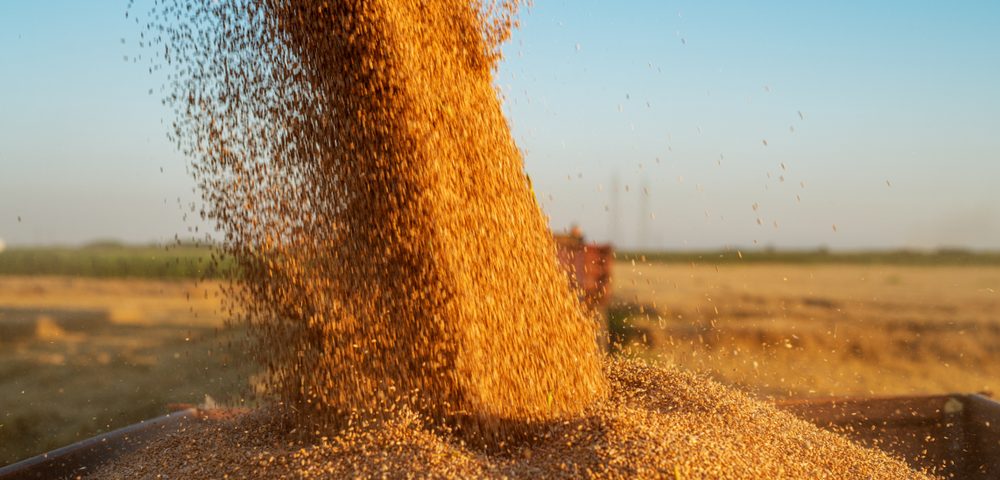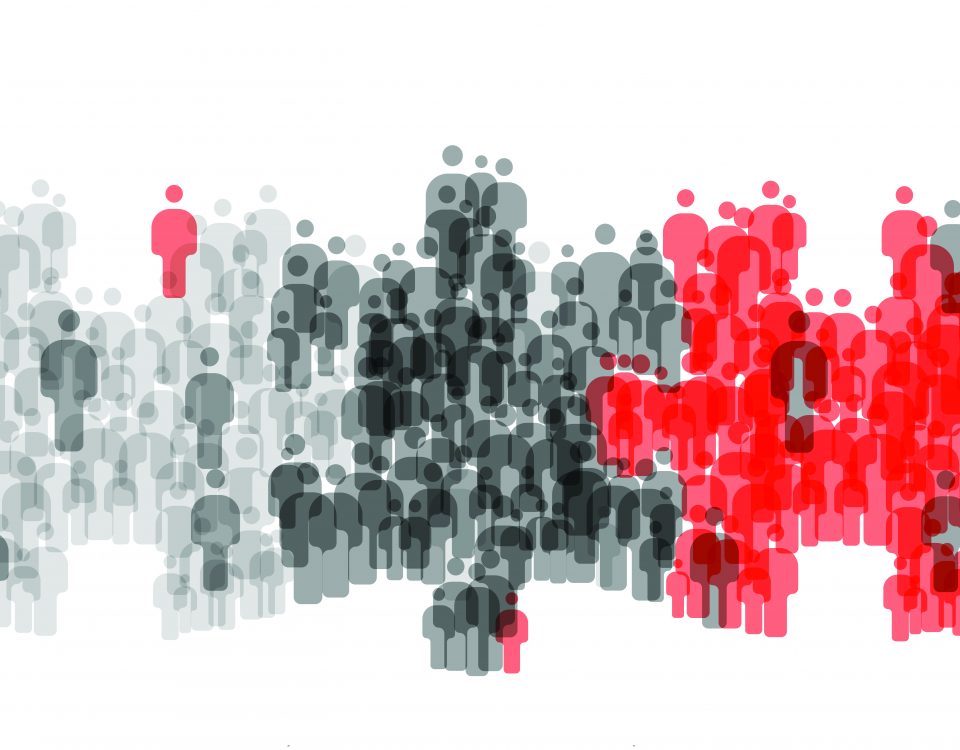


Governing the Genome for a Brave New World?
12 December 2021
Are Communicable Diseases Only Communicable?
12 December 2021By Daniel Benamouzig, Centre for the Sociology of Organisations and Joan Cortinas, Health Chair
On 30 May 2018, the headline of Libération read ‘Comment les lobbies cuisinent nos députés’ (How lobby groups put pressure on our members of parliament). A long report, completed by articles published over the following days, explained how the agrofood industry helped to get several parliamentary amendments on the EGALIM law (agriculture and food law) rejected.  This law, which was ultimately adopted in October 2018, was intended to restore balance to the sector’s commercial relations in favour of farmers and to promote a healthy, sustainable diet. Organised leaks to the phytosanitary product industry enabled blockage of one member of parliament’s proposal to ban the use of glyphosate after 2021. Another amendment, intended to make the Nutri-score label mandatory in all food product advertising, was also defeated and rejected by the parliamentary commission and the plenary session. These political sequences echo the activities of the agrofood industry in the field of public policies, particularly on health matters. This article proposes an analysis of these activities. Who are the protagonists and what resources do they have? What strategies do they implement to state their positions? Through which organisations do they operate and in which social arenas?
This law, which was ultimately adopted in October 2018, was intended to restore balance to the sector’s commercial relations in favour of farmers and to promote a healthy, sustainable diet. Organised leaks to the phytosanitary product industry enabled blockage of one member of parliament’s proposal to ban the use of glyphosate after 2021. Another amendment, intended to make the Nutri-score label mandatory in all food product advertising, was also defeated and rejected by the parliamentary commission and the plenary session. These political sequences echo the activities of the agrofood industry in the field of public policies, particularly on health matters. This article proposes an analysis of these activities. Who are the protagonists and what resources do they have? What strategies do they implement to state their positions? Through which organisations do they operate and in which social arenas?
In France, these questions have been considered by researchers in the fields of public health and political science, as well as by often fragmented journalistic investigations. In general, studies are focussed on one segment of the industry– milk, salt, sugar – or an actor, institution associated with the production of food and nutritional policies – such as researchers and experts, or the National Assembly. One of the Health Chair’s at Sciences po Paris research programmes seeks to provide an overview of the political activities of French agrofood companies, in the form of a detailed map, drawn up in collaboration with public health institutions.
Mapping the Strategies of the Agrofood Industry
Producing a map of this kind implies obvious social and political challenges, and a methodological challenge related to the difficulties of objectifying discreet practices. Without getting into the democratic aspects of such practices, it is important to note the displacement produced by a transversal vision. This leads us to consider phenomena that are often addressed on the scale of personal conflicts of interest, associated with a handful of experts, on a more collective and organised scale. In response to demands from a growing segment of public opinion, and in the wake of public health scandals and crises, the public authorities have set about limiting the scope of private interests in the definition of public interests. However, these links are far from being purely individual or interpersonal. As shown by the map produced, they actually come from a complex and sophisticated organisation. Strategies are patiently rolled out in different social spheres. They evolve, coordinate with one another, are renewed and collectively weigh upon public policies.

Lobbying in the EU – Greens/EFA conference 10 April 2014, CC BY 2.0, via Flickr
According to these dynamics, individualised management of personal connections and conflicts of interest and the associated regulations are rarely on the correct scale: they encourage the identification of problematic situations, or the existence of relations between experts and private interests. An overview puts the importance of personal conflicts of interest into perspective and invites more transversal regulation, on the scale of the collective strategies implemented. The map of the political activities of these companies enables us to identify, measure the frequency, and estimate the scope of the multiple and diverse interventions of the agrofood industry. There are three main types, which we have classified as cognitive activities, relational activities and symbolic activities.
The Battle of Knowledge
What are cognitive activities? They include the production of knowledge and ignorance that enable agrofood companies to reveal certain scientific findings to the detriment of others in the fields of food and nutrition. Much research has been conducted on the relationships between the production of knowledge and ignorance and the production of doubt. This practice consists of revealing and communicating arguments, often based on scientific studies, to discredit research results that highlight the negative aspects of one particular product or ingredient. For example, it might mean pointing out that the addictive effects of sugar have certainly been proved in animal models, but not in humans. Another tactic involves ‘re-centring’ the debate, to shift a problem addressed from a scientific viewpoint towards other considerations, by producing economic, cultural, legal, ethical or political arguments that put the scientific results into perspective. The consumption of fatty products might indeed be bad for our health, but is the prevailing concern not one of freedom of choice or the expression of our culture?
These cognitive practices are implemented by specialist organisations, mainly by research and information centres and institutes created by industrial companies. Our investigation identified around twenty such organisations. The dairy industry appears to be the most diligent, with no fewer than nine specialist organisations. Aside from the bodies specific to each industry, the FFAS (French fund for food and health), which is funded and supported by many companies and industries, has the largest number of connections with all the stakeholders in the sector, as well as the largest number of researchers, not to mention a place in the political field.

Site web de l’American Society for Nutrition
At the same time, the survey also identified almost thirty scientific arenas that are repeatedly invested by the agrofood sector. These include research institutions and centres, such as the Pasteur Institute in Lille or the ANCA Chair of AgroParisTech; academic societies, including the leading players in the area of nutrition; scientific congresses and conferences, such as the International Congress of Nutrition and the European nutrition conference; and finally scientific journals, such as Cahiers de Nutrition et de Diététique.
To ensure its presence in the scientific field, the agrofood sector uses academic experts who act as intermediaries between the economic world and the sphere of research. They introduce economic stakeholders to scientific controversies and can be called upon to write opinion pieces that support industrial interests(1)« Pourrait-on nous laisser manger tranquilles ? », Centre de Recherche et d’Information Nutritionnelles, juin 2014 . These scientists are generally members of expert committees of companies or interest representation organisations..
Proximity to Decision-making
Industrial stakeholders are gradually moving closer to public decision makers through a wide variety of relational activities, more spontaneously associated with lobbying. In practice, this involves building personal relationships with members of parliament or other people responsible for making public decisions. Alliances with other economic sectors or representatives of civil society are also created, with the aim of creating coalitions to support the industry. In more radical situations, representatives of economic interests sometimes even replace political players, by taking on their roles. They thus become responsible for designing or implementing, either entirely or partially, public action programmes.

Congrès de l’Association Régionale des Industries Alimentaires (ARIA) de la région Sud Provence-Alpes-Côte d’Azur
The players specialised in this type of activity are mostly industry and activity interest representation organisations. ANIA (French association for the agrofood industry), FCD (French federation of trade and distribution) and FNSEA (French federation of agricultural unions) are among those with the most representation in government bodies. The most invested public institutions to implement relational strategies are the National Assembly, the Senate and the CNA (French council on food). Interest representation activities can also be implemented directly by companies. Fifteen companies are regularly present at the National Assembly, where several parliamentary clubs and study groups encourage discussions with members of parliament and the government ; these include the ‘Club de la table française’ (French table club) and the ‘Club des amis du cochon’ (friends of the pig club).
Symbolic Credit and Discredit
The intervention levers of agrofood companies are also symbolic: the aim is to improve their own credibility and to discredit their adversaries. Many symbolic actions are implemented to enhance the credibility of a company or an industry: a reputation or moral authority is developed through commitments to noneconomic stakeholders who have a good reputation. Examples include philanthropic actions via partnerships with charities and NGOs that fight poverty or promote sport. Organisations specialised in building good reputations are mostly company foundations. Among the nine foundations identified by our investigation, Carrefour and Monoprix’s foundations were the most active, totalling two thirds of the partnerships observed.
In a symmetrical fashion, other practices are implemented to chip away at the symbolic credit of possible ‘opponents’. Adversaries’ reputations are deliberately damaged by discreet or public questioning of their scientific or moral authority. By making them out to be ‘activists’ or ‘obsessive’, opponents thus become illegitimate figures. Deliberate use of psychological and personalised arguments, and possibly even threats of legal procedures or actual complaints, push these practices even further(2)Pierre Meneton : un chercheur attaqué par l’industrie du sel | LaNutrition.fr, juillet 2017..
Regulating conflicts of structural interest?
The diversity of the companies’ political activities makes it difficult to reduce them to the personal sphere of conflicting interests. Although personal interests must be limited, they cannot be considered while broader sector-based strategies are neglected. This revelation of the systemic nature of political activities and the organisational fields they comprise raises the question of the more comprehensive and specific regulation of relationships between public and private arenas. Two possibilities might be explored. The agencies responsible for regulating nutritional issues could acquire the skills to enable them to document the political activities of the companies whose products they regulate, rather than limiting themselves to the management of private interests. Such knowledge would afford a better understanding of the subjects addressed and could direct the political activities of the companies towards actions that are more respectful of the autonomy of the parties called upon for support, be they scientists, members of parliament or charities. At the same time, legislators could ensure that the resources invested by the companies in their political activities are reported, following the example of the pharmaceutical industry’s public database Transparence santé. Via a kind of mise en abyme, the development of these proposals could serve as an indicator of the effectiveness of the efforts aimed at limiting the problematic effects of the political activities of companies, or, conversely, of their capacity to avoid them.
Created in 2006 and currently directed by Daniel Benamouzig, sociologist and CNRS Senior Researcher at the Centre for the Sociology of Organisations, the Sciences Po Health Chair brings together the world of health activities and policies with that of social sciences.
In the landscape of health policies, it holds a unique position, offering a special place for discussions, debates, and the production and sharing of new knowledge related to pragmatic and decision-related challenges.
Discussion
An initial activity area is organised around conferences, seminars and congresses on topics of general interest, such as links between health and environment or between science and decisions, access to therapeutic drugs or the use of artificial intelligence in health. For the Sciences Po Health Chair, this means participating in debates on health policies through academic skills and projects.
Research
A second activity area is organised around original research into matters related to public health, the environment or nutrition, or new ways of organising treatment.
The Chair has been selected to evaluate the Ile de France area’s regional health project.
Training
Finally, the Chair contributes to various teaching courses on health at Sciences Po, in both initial and ongoing training programmes.
Partnerships
Operational aspects of the Chair involve a wide range of academic and institutional partners -within Sciences Po, Université de Paris and other academic establishments, such as EHESP French School of Public Health or Chicago University– as well as health institutions, such as the French Ministry of Solidarity and Health, the national health insurance fund, Santé Publique France and the regional health agency for Ile de France.
The Chair also works with economic stakeholders in the health industry, such as the Docaposte group, AG2R LA MONDIALE and Institut Odoxa, with which it conducts opinion surveys on health issues.Créée en 2006, dirigée aujourd’hui par Daniel Benamouzig, sociologue et directeur de recherche au CNRS au Centre de sociologie des organisations, la Chaire Santé de Sciences Po fait se rencontrer le monde des professions et des politiques de santé avec celui des sciences sociales. Dans le paysage des politiques de santé, elle occupe une place singulière, en offrant un espace privilégié d’échanges, de réflexions, de production et diffusion de connaissances conçues en lien avec des enjeux décisionnels et pragmatiques.
Benamouzig, D. Cortinas, J. (2019) « Les stratégies politiques des entreprises en santé publique : le cas de l’agroalimentaire en France », Revue française des affaires sociales.
Cortinas, J. Benamouzig, D. (2020) « Mesurer l’influence ? Une méthode de quantification des activités politiques des entreprises du secteur agroalimentaire en France », Bulletin de méthode sociologique.
Daniel Benamouzig is a senior researcher at the Centre for the Sociology of Organisations at CNRS, and director of the Sciences Po Health Chair. His research is focussed on health, the economy and institutional governance. He is a member of the Covid19 scientific council. He has studied the history of the health economy and the institutional transformations of regulations in the health sector. He pursues his research in economic sociology and on health policies, looking in particular at institutional transformations and economic knowledge. Joan Cortinas, is a sociology lecturer at Bordeaux University and a researcher for the Sciences Po Health Chair. Since 2018, he has been working with Daniel Benamouzig on the role of economic players in the production of health and nutrition policies. Together, they have published several articles on this topic. They are currently working on the industry’s role in the production of alcohol prevention policies.
Notes
| ↑1 | « Pourrait-on nous laisser manger tranquilles ? », Centre de Recherche et d’Information Nutritionnelles, juin 2014 |
|---|---|
| ↑2 | Pierre Meneton : un chercheur attaqué par l’industrie du sel | LaNutrition.fr, juillet 2017. |




